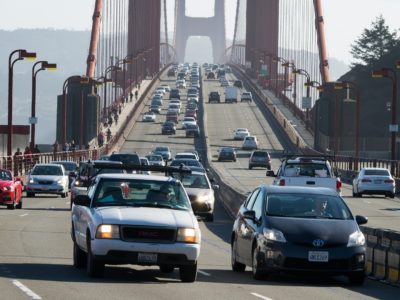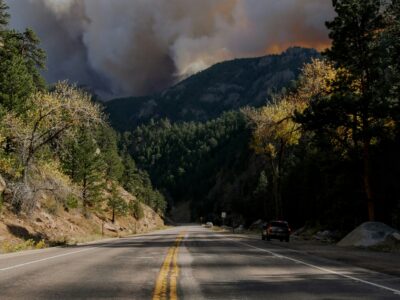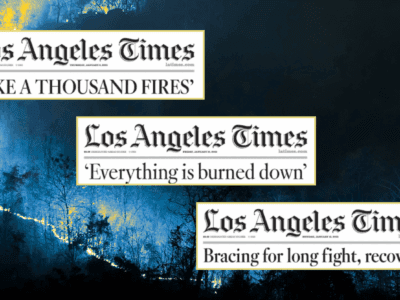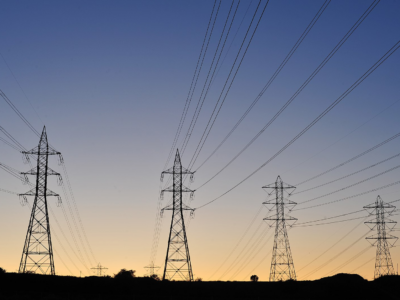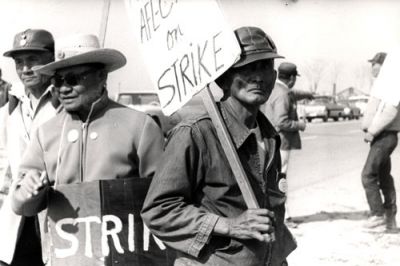California
The Lingering Legal Issue of California’s Limits on Vehicle Emissions
The issues are complex, but the state has some strong legal arguments on its side.
The odds are high that the Trump Administration will withdraw California’s power to regulate greenhouse gas emissions from cars and trucks – and along with it, California’s effort to become all-electric. This is a crucial issue for the state because transportation accounts for about 40% of the state’s emissions. It’s also crucial for the other states have exercised the option of adopting California standards. The issues are complex, involving an unusual statutory scheme. Here’s what you need to know, and why I think California should win this fight.
CONTINUE READINGGood COP, Bad COP in Belém, Brazil
The Drain is a weekly roundup of environmental and climate news from Legal Planet.
The United Nations mega-conference focused on climate change known as COP (“Conference of the Parties”) is well underway in Belém, Brazil with 193 countries plus the EU, 57 heads of state, 39 ministers and hundreds of governors, mayors, and local officials participating. Two of my UCLA Law colleagues are on the ground in Belém this …
Continue reading “Good COP, Bad COP in Belém, Brazil “
CONTINUE READINGOf Pistachios and Water Features
What might be included in the SB 131’s CEQA exemption for advanced manufacturing may surprise you
One of the most controversial provisions of SB 131, which created a range of new CEQA exemptions, was an exemption for “a facility for advanced manufacturing, as defined in Section 26003, if the project is located on a site zoned exclusively for industrial uses.” But what on earth might that cover? Is this a broad …
Continue reading “Of Pistachios and Water Features”
CONTINUE READINGCalifornia Wonders if it is Doing Wildfire Risk All Wrong
The California Wildfire Fund seeks input from stakeholders on a range of possible reforms.
Senate Bill 254 (Becker) deservedly received a lot of attention when the Governor signed it into law earlier this year. After many twists and turns and late night speculation of will they/won’t they, SB 254 became a landing pad for a sweeping set of wildfire and electric utility policy adjustments. Among the headlines: Creation of …
Continue reading “California Wonders if it is Doing Wildfire Risk All Wrong”
CONTINUE READINGA Strangely Important Case about… Boilers?
UCLA Law’s clinic files Ninth Circuit brief in defense of core air pollution control authority.
When I think about sources responsible for LA’s air pollution, I don’t first think about water heaters, boilers, and other medium-scale appliances. But it turns out that appliances that burn natural gas to heat water are, in aggregate, an incredibly significant source of nitrogen oxides (NOx), an air pollutant that worsens smog and causes serious …
Continue reading “A Strangely Important Case about… Boilers?”
CONTINUE READINGWhat Went Wrong with News Coverage of the LA Fires
The Drain is a weekly roundup of environmental and climate news from Legal Planet.
When disaster strikes your town, you rely on journalists to help explain what happened and why. Last January, many of us in Los Angeles turned to The LA Times as unusual firestorms kicked up and ultimately destroyed parts of Altadena and Pacific Palisades. The LAT’s journalists and photojournalists did incredible coverage from lots of angles, …
Continue reading “What Went Wrong with News Coverage of the LA Fires”
CONTINUE READING3 Lessons for a Regional Western Electricity Market
California is paving the way for the creation of an independent regional organization to oversee Western energy markets. It can learn from mistakes made in other regions.
In case you missed it among all the other news, the California legislature passed AB 825 in September (and Gov. Gavin Newsom signed it as part of the big energy package), paving the way for the creation of an independent regional organization to oversee Western energy markets. This presents a whole set of interesting challenges …
Continue reading “3 Lessons for a Regional Western Electricity Market”
CONTINUE READINGManila Protests Over Environment Follow a Rich Tradition
Happy Filipino American History Month. Here’s a look at Filipino-led protests for environmental justice.
The Philippines made international news last month when several tens of thousands of protestors took over the streets of Manila to express their outrage over the government’s embezzlement of over a trillion Philippine pesos (approximately $17.6 billion USD) designated for flood control projects. Losing this amount of climate-designated funds to corruption would be problematic anywhere …
Continue reading “Manila Protests Over Environment Follow a Rich Tradition”
CONTINUE READINGLighting Candles in Dark Times: Environmental Law Centers in the Trump Era
These law school centers show it’s possible find ways to make a difference.
Environmental law have become vibrant parts of the law and policy ecosystem. At a time when despondency seems all too common, the work of these law school centers offers beacons of hope for the future of environmental protection. Some of that work is playing defense — pushing back against deregulatory efforts — while other work plays offense by identifying innovative directions for environmental policy. A comprehensive survey isn’t practical, but I’ll provide examples from several different centers.
CONTINUE READINGBackfilling the federal ESA
AB 1319 is a good first step to responding to efforts to weaken the federal ESA
I wrote this past spring about a proposal by the Trump Administration to eliminate the definition of harm in the regulations implementing the federal Endangered Species Act (ESA), which might eliminate protections from habitat modification for federally listed species. I also noted three different steps California could do to backfill the federal ESA if such …
Continue reading “Backfilling the federal ESA”
CONTINUE READING



